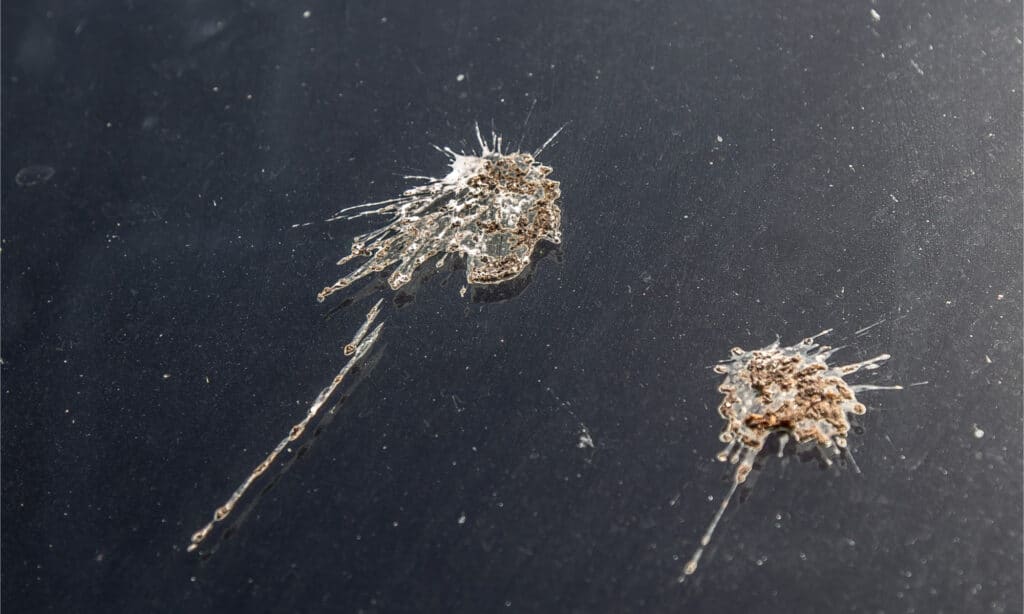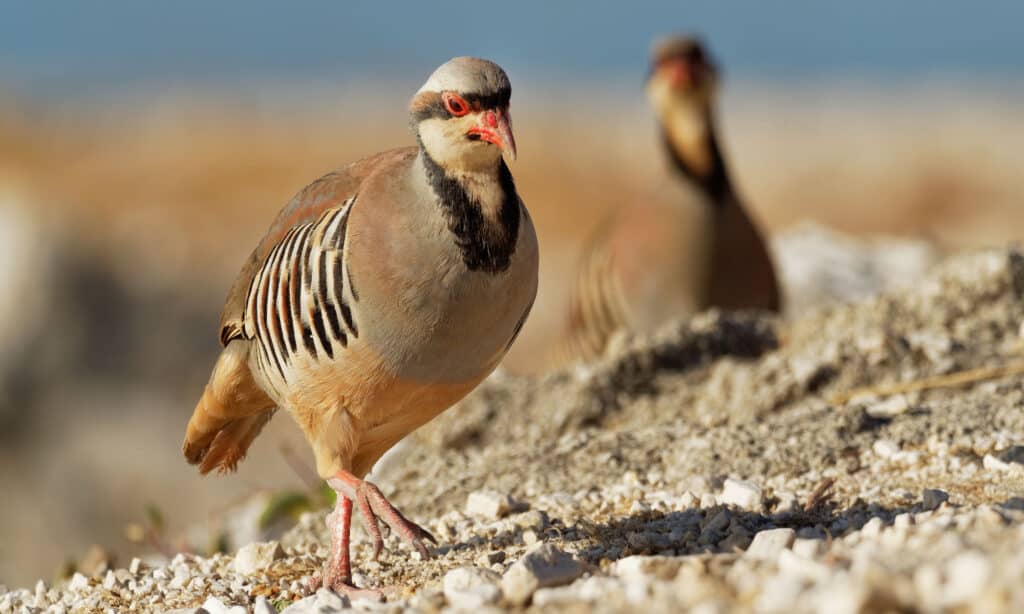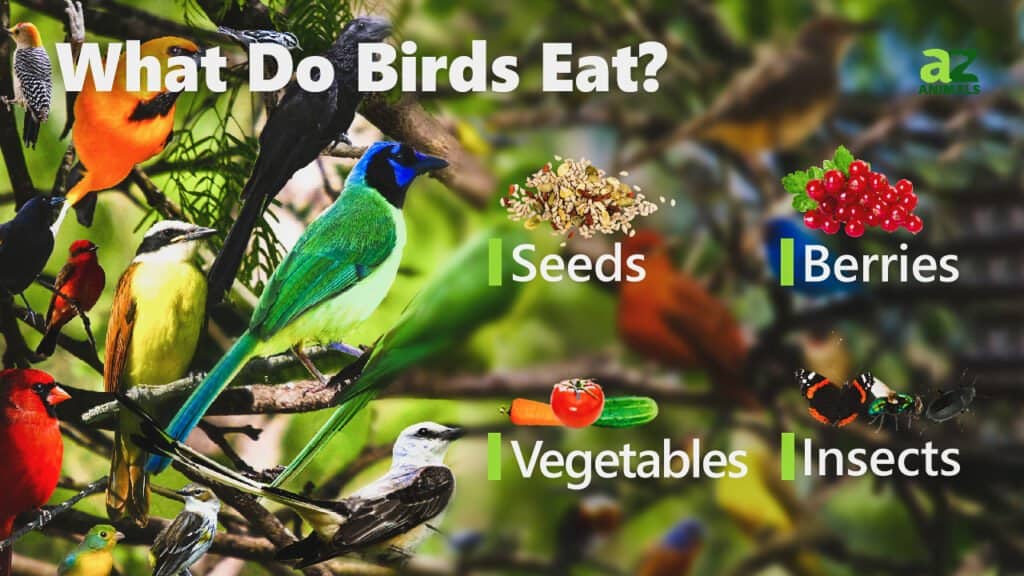While people say that the window to a man’s soul is their eyes, bird people say that bird poop is the window to a bird’s health. And this can’t be truer. Poop may be a subject that pet bird owners are more familiar with than any other pet owners. Most bird owners know the significance of regularly checking their feathery friend’s droppings for sickness symptoms. But when it comes to bird poop, it can be challenging to define just what is “normal.” Even though it might seem disgusting, maintaining your pet’s health can be greatly improved by examining your bird’s droppings for color, texture, and other characteristics.
Not only bird owners encounter bird poop, though – even common people walking randomly along streets or resting peacefully under the trees can occasionally receive a bird’s “blessing” from above. But what does bird poop look like? Does it smell? Is it toxic to humans? This article will explore everything you’ve ever wanted to know about bird poop and more!
What Does Bird Poop Look Like?

Bird droppings
©Vladimir Konstantinov/Shutterstock.com
Once you see a bird dropping on the sidewalk, above your car, or on you, you can easily spot it and identify it as bird poop. Birds have this unique dropping characteristic that cannot be compared to mammals and other animals.
Color
Bird poop is called droppings and is normally green-hued. Healthy bird droppings can appear in various hues and still be regarded as “normal.” Suppose you enhance your bird’s feeds with a commonly available diet. In that case, your bird probably eats a wide variety of fresh fruits and vegetables, a vast array of unique seeds, and a range of multicolored pellets. The natural result of the food dyes in these pellets and the natural hues of the fresh foods your bird consumes is a rainbow of colors in their excretions.
Texture and Consistency
Depending on your bird’s diet, the texture of the droppings will also change. To ensure that your bird’s feces is healthy, there are a few things to bear in mind when examining it. One thing to remember is that the dropping shouldn’t be either moist or too dry. A fair rule of thumb is that the excrement should closely resemble toothpaste in consistency.
A bird’s droppings are typically fluid, unlike those of mammals and other animals. Since a bird’s anatomy lacks a specific mechanism for removing liquid waste from its body, a substantial quantity of liquid should be present in a healthy bird’s excrement.
Size and Amount
The number of a bird’s droppings will, as one might anticipate, depend on the size of the bird delivering them. Put another way, smaller birds will leave behind smaller droppings, whereas larger birds will leave behind larger excrement.
On average, a single bird defecates 48 times daily, and smaller birds poop more frequently during the day. Larger birds like macaws can poop 24 times per day, compared to 48 times for medium-sized birds and 100 times for smaller birds like lovebirds.
You can give your bird a blueberry if you’re concerned about how frequently it poops. With this update, your bird’s feces will become blue, and you can tell how long it takes after feeding time for blue poop to appear.
Is Bird Poop White?
Although you might see some dried white bird droppings on the sidewalk or on your car, bird poop is actually not white. In contrast to mammals, birds lack separate excrement and urine outlets. Through their cloaca, both waste materials are expelled at the same time. Also unlike mammals, which mostly excrete metabolic waste in the form of urea, birds turn it to uric acid or guanine, which minimizes water loss, resulting in a paste that is white and sticky. Therefore, the white portion is actually bird pee, and the dark core is the actual dropping.
Does Bird Poop Smell?

Unlike mammalian droppings, bird poop doesn’t have much odor.
©Martin Pelanek/Shutterstock.com
Generally, bird poop shouldn’t have any smell or odor, unlike mammalian droppings. This is due to the fact that birds often eat more fruits and vegetables and less meat. Mammal excrement typically has a stronger odor since meat protein is high in sulfides. Aside from that, many mammals, including dogs and cats, possess anal glands around their anus, producing an unpleasant stench. Overly odorous bird poop may signify an infection, digestive issues, or other illnesses.
How is Bird Poop Useful?
Contrary to popular belief, having some bird droppings in the garden is helpful since they make a terrific addition to compost or fertilizer. In the form of rotting chicken manure, which raises the soil’s nutritional content and water-holding ability, many gardeners rely on bird droppings for their plants.
Bird poop is proven advantageous to your garden, particularly for green vegetables, thanks to the phosphorus in the droppings and other minerals. The white component of bird droppings also contains a lot of nitrogen, fertilizing the soil.
Is Bird Poop Hazardous?
Bird poop is commonly not hazardous. However, inhaling dust or water droplets contaminated with bird droppings can cause several illnesses, including psittacosis, a flu-like condition. Certain bird droppings may also include Salmonella, a bacterial illness that can cause diarrhea. Additionally, if feces is kept out for a long time, it will develop bacteria and fungi, which, once dried, could become airborne contaminants through cleaning or flapping wings and cause respiratory sickness if breathed in. Furthermore, excrement that has accumulated in huge amounts might produce a lot of ammonia and harm your lungs.
What Do Birds Eat?

Insects make up most of some birds’ diets, such as insectivorous birds. On the other hand, some birds feed primarily on plants and are classified as herbivores. However, the group of herbivores is broad. Some birds are granivorous, which means they consume mostly seeds, while others are frugivorous, which means they mostly eat fruit. Others, though, are carnivores that only consume live prey, like rodents and snakes. Given this variability, it would be inaccurate to generalize that all birds enjoy a particular diet. Instead, some birds like particular foods while others favor different meals.
The photo featured at the top of this post is © iStock.com/SteveByland
Thank you for reading! Have some feedback for us? Contact the AZ Animals editorial team.






